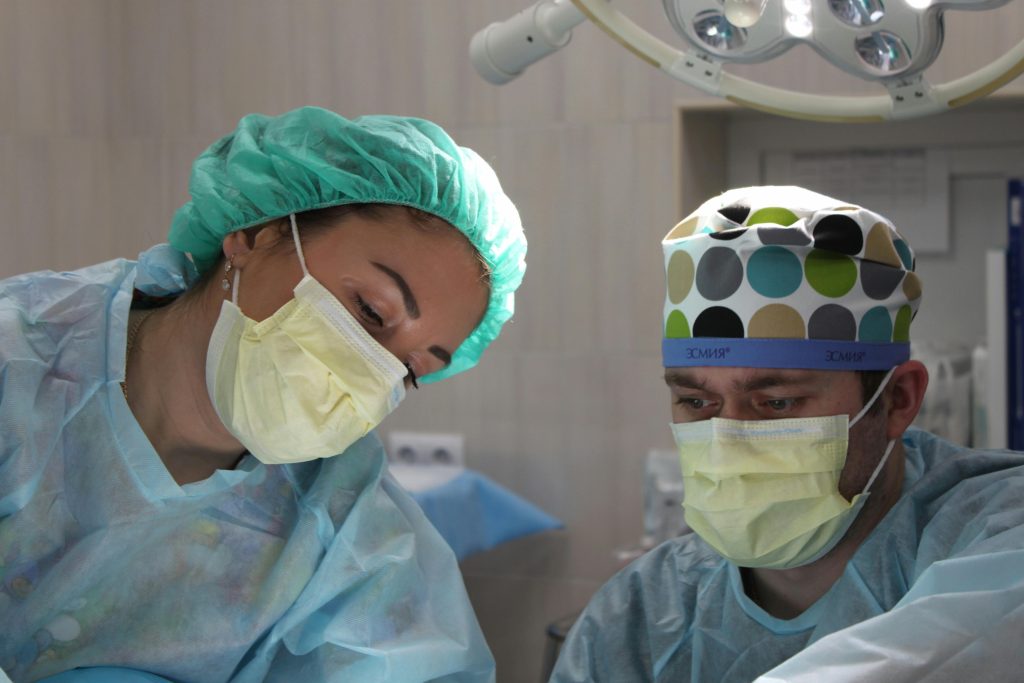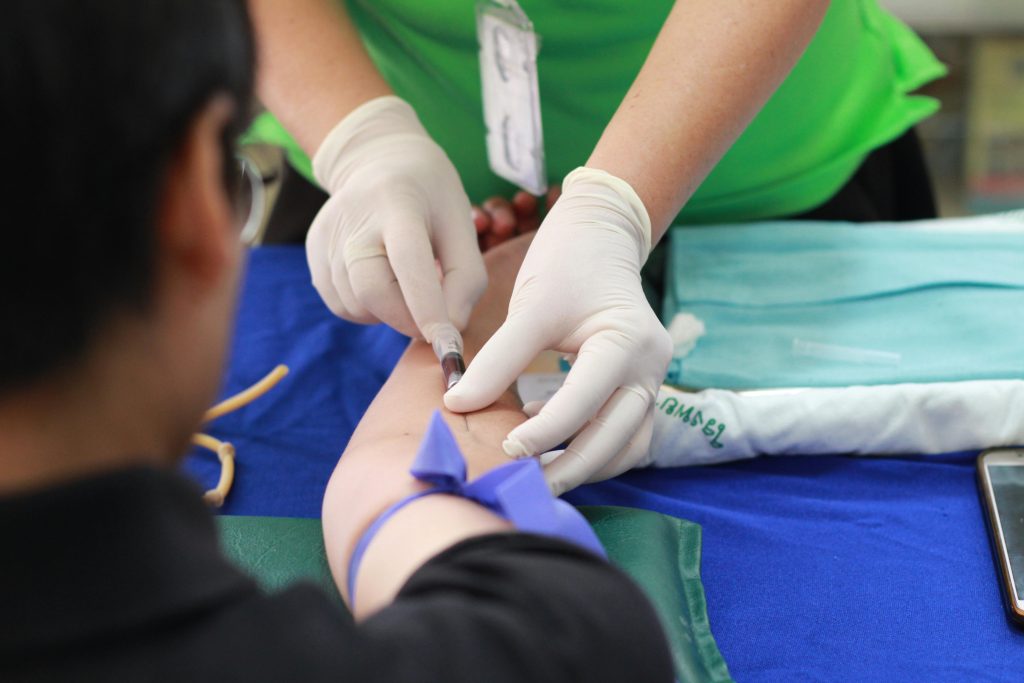Certified Nursing Assistant
Learn fundamental, practical skills for a career as a nursing assistant. This self paced program prepares you to provide compassionate care under the supervision of licensed nurses and includes an exam voucher for certification.

24 weeks
10–15 hours
Estimated weekly effort
$28,000
Average starting salary (estimated)
4%
Projected job growth (10 years, estimated)
60,000
Entry-level job openings (US, estimated)
Why Choose a CNA Career?
Discover if you have the ideal personality and learn what makes this career rewarding and secure.
Ideal Personality
You are a Caregiver: Likes helping people, patient, steady, okay with tough/dirty work.
What the Work Is Like
You’ll be hands-on with patients — helping them eat, bathe, dress, and move safely. CNAs also check vitals and support nurses with daily care. It’s steady, physical, and people-focused.
Job Security
High. Even in an economic downturn, hospitals and elder care facilities don’t pause — bedside care stays funded.
Bonus Benefits
Many hospitals and nursing homes offer free training, tuition reimbursement, or shift differentials for nights and weekends — boosting your pay.
Program overview
World Education’s Nursing Assistant program provides an in depth curriculum covering the knowledge and skills required to become a Certified Nursing Assistant (CNA). The course teaches basic patient care, communication, safety and infection control, vital signs, body systems, and prepares you for certification through a series of 15 modules.
What does a Nursing Assistant do?
Nursing assistants, also known as nurse’s aides or patient care technicians, work under the supervision of nurses to provide basic care services. They assist patients with activities of daily living such as bathing, grooming, feeding, dressing and toileting; measure and record vital signs; help move and transfer patients safely; provide emotional support and report patient conditions to the nursing staff.
- Assist patients with bathing, grooming, feeding, dressing and toileting.
- Measure and record vital signs (temperature, pulse, respiration, blood pressure).
- Maintain safe and sanitary environments through infection control practices.
- Communicate effectively with patients, families and healthcare teams.
- Support the nursing process by observing and reporting changes in patient conditions.

Certifications earned / eligible for
Certified Nursing Assistant (CNA) — credential required to work as a nursing assistant; exam voucher included upon program completion.
Career opportunities summary
Graduates are prepared for entry level roles such as Certified Nursing Assistant, Nurse Aide, Orderly, Patient Care Technician and Home Health Aide in hospitals, nursing homes, assisted living facilities and home care settings.
Program details
The course is divided into 15 modules covering patient care, communication, safety, body systems, hygiene, nutrition and end‑of‑life care.

Structure & Curriculum
Module 1 - The Nursing Assistant (approx. 15 hours)
Introduction to healthcare agencies, nursing teams, care patterns, paying for healthcare, patient and resident rights, role of the nursing assistant, laws and delegation.
Module 2 - Ethics and Communication (approx. 15 hours)
Ethical and legal aspects, reporting abuse, wills, student and work ethics, communication skills, reporting and recording, computer and phone communications.
Module 3 - Body Structure and Development (approx. 15 hours)
Medical terminology, body functions, cells and tissues, body systems, growth and development and care of older adults.
Module 4 - Ensuring Safety and Preventing Infection (approx. 15 hours)
Accident risk factors, burn and poison prevention, hazardous chemicals, fall prevention, transfer belts, restraint alternatives, infection prevention, hand washing and PPE.
Module 5 - Body Mechanics, Moving and Transferring (approx. 15 hours)
Isolation precautions, work related injuries, positioning, moving and transferring patients safely using wheelchairs, stretchers, and mechanical lifts.
Module 6 - Personal Hygiene (approx. 15 hours)
Bedmaking, daily hygiene, oral care, bathing and perineal care.
Module 7 - Grooming and Urinary Needs (approx. 15 hours)
Hair and nail care, dressing and undressing, urinary catheters and drainage systems, urinary incontinence and bladder training.
Module 8 - Bowel Needs and Nutritional Support (approx. 15 hours)
Normal bowel movements, training, suppositories and enemas, factors affecting nutrition, special diets, food safety, fluid needs, nutritional support and IV therapy.
Module 9 - Vital Signs, Exercise and Discharges (approx. 15 hours)
Measuring and reporting vital signs, body temperature, pulse oximetry, exercise and activity, rest and sleep, admissions, transfers and discharges.
Module 10 - Physical Examinations, Surgery and Wound Care (approx. 15 hours)
Preparing patients for physical exams, specimen collection, psychological care, pre operative and post operative care, wound care and dressings.
Module 11 - Pressure Injuries and Oxygen Needs (approx. 15 hours)
Identifying risk factors, stages of pressure injuries, complications, application of heat and cold, oxygen needs and respiratory support, suctioning and mechanical ventilation.
Module 12 - Body System Disorders (approx. 15 hours)
Rehabilitation programs; hearing, speech and vision problems; cancer, immune and skin disorders; nervous and musculo skeletal disorders.
Module 13 - Body System Disorders Part 2 (approx. 15 hours)
Cardiovascular, respiratory, lymphatic, digestive, endocrine, urinary and reproductive disorders; mental health disorders.
Module 14 - Intellectual Disabilities and Maternal/Child Care (approx. 15 hours)
Dementia and Alzheimer’s disease, intellectual disabilities, development disabilities, sexuality, breast feeding and bottle feeding, caring for mothers and infants.
Module 15 - Emergency and End of Life Care (approx. 15 hours)
Assisted living, transfers and discharges, emergency procedures, end of life care, terminal illness, comfort needs, signs of death and job readiness.
Total program duration: 270 hours (~24 weeks)

Exam eligibility note
Upon completion, students receive an exam voucher to sit for the state Certified Nursing Assistant examination; exam fees are covered.
AMA collaboratio
Not applicable.
Enrollment requirements
- No high school diploma required to enroll; program is suitable for beginners.
- Ability to read, write and communicate in English.
- Access to a computer or mobile device and broadband internet.
- Some employers may require a high school diploma, background check and health screening for employment.
Covered materials included with training
- eTextbooks for all modules (no additional book fees).
- Interactive course materials and activities.
- Exam voucher for CNA certification.
Student services / supports
- Admissions advisors help identify career paths and funding solutions.
- Client advisers provide customer and technical support and monitor progress.
- Course mentors offer curriculum support and may assign quizzes and activities.
- Optional career services include externship placement, resume building, mock interviews and job search assistance.
Career Outlook
Nursing assistants are indispensable members of the healthcare team. Their demand continues to rise, fueled by the increasing aging population and the expansion of long-term care facilities. As the backbone of patient care, nursing assistants ensure that individuals receive the attention and support they need, making their role more crucial than ever in our evolving healthcare landscape.
Job roles & salary ranges
Certified Nursing Assistant
$23,000–$35,000
Nurse Aide / Orderly
$22,000–$34,000
Patient Care Technician
$25,000–$38,000
Salary estimates based on national averages and BLS data; Alabama salaries may trend toward the lower end.
60,000
Entry-level job openings (US, estimated)
4%
Projected 10-year growth (estimated)
$28,000
Average starting salary (estimated)
Funding & grants
World Education participates in multiple financial assistance programs including military and non‑military funding.
Funding options listed
- MyCAA for military spouses (up to $4,000).
- Vocational Rehabilitation funding.
- Workforce development programs (WIOA).
- Other third party funding sources and employer tuition assistance.
Military spouse grants note
MyCAA funding may cover part or all of the tuition for eligible spouses of active duty service members.
Military spouse grants note:
MyCAA funding may cover part or all of the tuition for eligible spouses of active duty service members.
Call to action for funding
Contact admissions to explore funding eligibility or select the Funding Options link on the course page.
Frequently Asked Questions
Contact World Education via online chat, the website contact form or toll‑free at 1‑855‑201‑6910.
No, a diploma or higher education degree is not required to enroll in an online course; however, some employers may have minimum education requirements.
You need access to broadband internet and an internet‑ready device such as a laptop, PC or tablet.
Yes, World Education participates in several financial assistance options including military and non‑military funding.
Online courses are open enrollment and you can start immediately; if using third‑party funding, your start date may be determined by your funding program.
Upon enrollment you are assigned a client adviser for technical and customer support and a course mentor for curriculum assistance.
Disclaimers & legal notes
Course outlines are subject to change as materials are updated. Some states may require additional clinical hours or background checks to obtain CNA certification; research your state requirements before enrolling.
Onsite / clinical requirements note
Certification and employment as a CNA may require completion of hands‑on clinical hours and successful completion of a state competency exam. This program is fully online but may include an optional externship.
